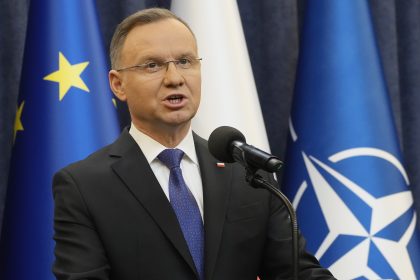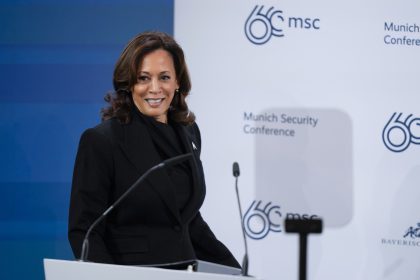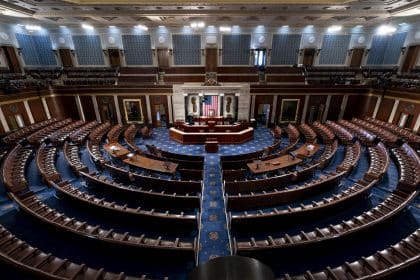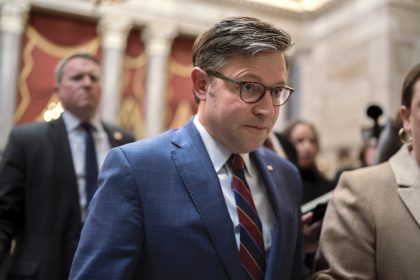Panelists Call for Industrial Policy to Counter China’s Party-State Economic Approach

The proposal for a national industrial policy took the stage Tuesday as a panel of experts grappled with how the U.S. government should respond to the increasing challenges posed by China’s “party-state capitalism.”
Panelists discussed the increased global growth of state-owned enterprises and in particular increasing monitoring and intervention in the private sector by the Xi administration and Chinese Communist Party, in the event sponsored by the Center for Strategic and International Studies entitled, “Confronting Chinese State Capitalism.” The Chinese approach to industrial policy – with government intervention in almost all sectors of the economy – favors politics over normal economic factors such as profits, research, development and invention, the participants agreed.
Unlike the Chinese authoritarian policy, a U.S. industrial policy would include transparency and follow rule-of-law fundamentals of international trade, said Scott Kennedy, senior adviser at USIS.
China´s heavy-handed state-owned economy, on the other hand, aims for a world economy more dependent on China and its economy and less dependent on the world’s, according to James McGregor, chairman of Greater China at the APCO Worldwide. The greatest difficulty in formulating a response to this system is that it works for China, said Arthur Kroeber, founding partner of GavekalDragonomics. All panelists agreed, however, that it works primarily for China and not for the world market.
In response, the U.S. and other parts of the world will need to invest and bolster their own domestic systems, Kroeber said. They need to identify and address the specific harms of the Chinese policy, hone in on “strengthening the domestic resilience” and work within multilateral organizations – like the World Trade Organization or the World Bank – to build systems that are also resilient to the harms identified, he added.
During this “rebirth” of “dividing and conquering” companies, sectors or countries, the Xi administration has also shown it is willing to exert economic leverage on a global setting, said Carolyn Bartholomew, chairman of the U.S.-China Economic and Security Review Commission, adding that there is little to no room for reform or dissent in China.
China’s “global expansion efforts to increase its influence is also a threat for democracies around the world,” she said, particularly the further away China moves from an autonomous private sector through the controlling role of the state in corporate decisions.
“The Chinese aren’t doing this for wealth, they are doing this for power,” said Rob Atkinson, president of the Information Technology and Innovation Foundation, quoting Orvile Schell. This is particularly so for high technology sectors, where China has invested a great deal into becoming a global leader in technology, as seen through the deployment of 5G wireless technology.
In an innovation-based industry such as technology, the majority of the profits for one year will be put towards the company’s research and development efforts the next year, he said, which is why companies in those industries in free-market countries seek to obtain the largest market share through reinvestment. The Chinese system, however, has “distorted” the normal relationship between innovation and competition, Atkinson said, leading to too little competition, profits and product innovation.
Given the lack of transparency as well as different, lax requirements of Chinese patent rules, he said, they have ended up more as “copiers” than “innovators.” In the solar energy industry, for example, China’s global market share went from close to 0% in 2006 to over 60% in 2013, even though Chinese companies owned only 4% of global patents. Atkinson claimed that the “massive subsidies” that China has put into certain companies and sectors have pushed other players out of the market entirely, including those innovating “next-generation solar.”
Pointing to state-owned Chinese telecom equipment and manufacturing giants Huawei and ZTE, noting these would not exist but for government subsidies, Atkinson showed another example of lack of reinvestment in research and development. Despite other global companies like Sweden-based Ericksson and Finland-based Nokia investing more capital back into innovation and patenting, Atkinson said Huawei and ZTE have essentially taken their market share in the 5G industry, despite an estimated 20% less in global research and development and 75% fewer 5G-essential patents, he said.
“We have to have an industrial policy,” said Atkinson, an “advanced industry strategy” allowing the U.S. to also be a leader in technology.























